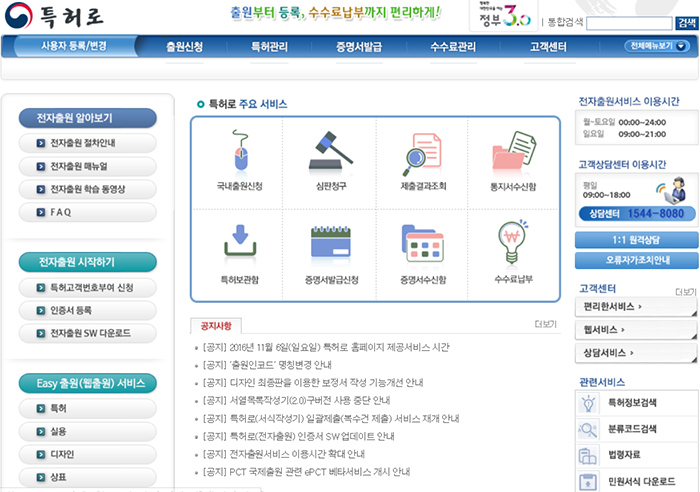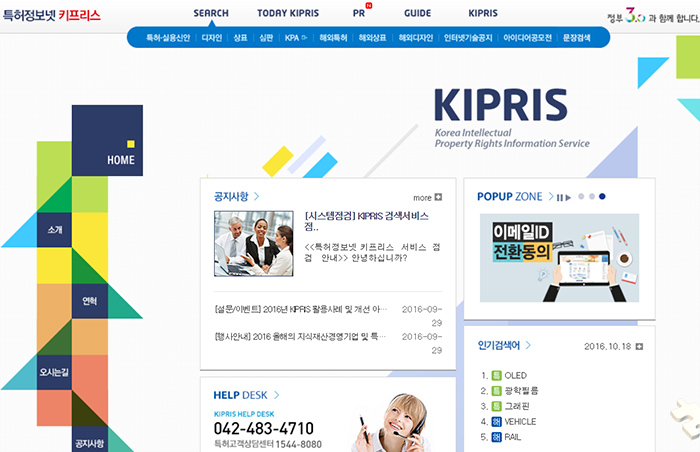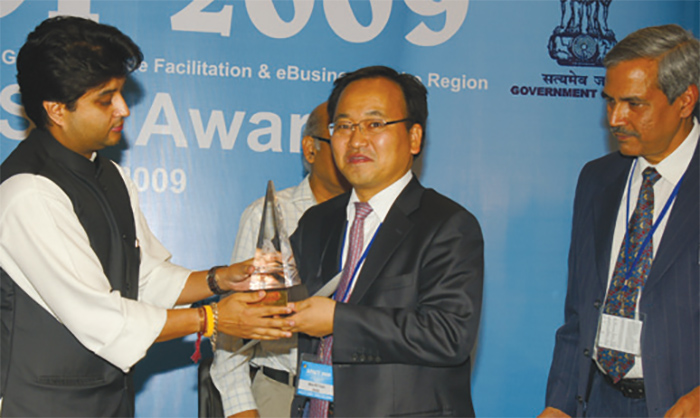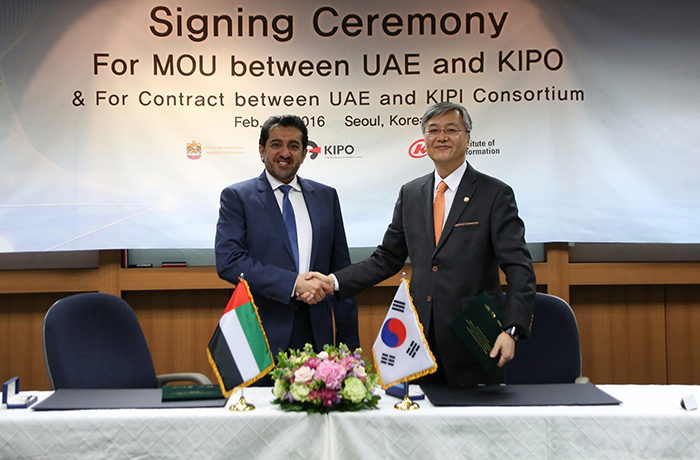|
The Korean government has been concentrating on establishing e-government services since 1987 when it enacted laws expanding the supply of desktops and promoting the use of computer networks in order to provide high-quality government services to the citizens in a more convenient manner. Thanks to such ongoing efforts to develop related technologies, Korea’s e-government systems are now receiving praise from all around the world. We would like to trace this journey from its initial footsteps through to some of today's successful cases, and look at future directions in which Korea's online government services and international cooperation could go. This is the fourth part of a series about the Korean government sharing its e-government systems with the world. Today we cover Korea’s online patent information system. |
Korea is one of the top five countries in the world to file patent applications, and is considered to be one of the top five most advanced countries in terms of intellectual property, along with the U.S., China, Japan and the EU.
According to the 2014 World Intellectual Property Indicator, published by the U.N.’s World Intellectual Property Organization, Korea filed 204,589 patent applications in 2014 in four industrial property right categories -- patents, trademarks, industrial designs, and plant varieties -- ranking fourth, after China, the U.S. and Japan.
Also in 2014, Korea filed 13,151 international patents, ranking fifth in the world and accounting for 6.1 percent of the total of 215,000 international patent filings.
The country topped the categories of patent application filings in relation to GDP, and patent applications per million of people, with 9,739 and 3,186, respectively.

The Road to Patent (특허로) is an online patent support system designed to help individuals who wish to apply for a patent by supporting patent-related administration processes, from filing patent applications through to patent examination procedures.
Korea’s well-established position in intellectual property rankings is largely attributed to its online patent system which enables users to carry out patent procedures online, from making an initial application, through to patent examination and registration.
In 1999, the Korean Intellectual Property Office (KIPO) developed an online patent information system dubbed KIPOnet. This was the first online patent information system ever developed in the world. It digitalized all the patent administration procedures, from receiving initial applications, through to examining and registration.
The patent authorities also established another online patent portal system: the Road to Patents (특허로). This was designed to help individuals who wish to apply for a patent by supporting patent-related administration processes. Another helpful online patent service was the Korea Intellectual Property Rights Information Service (KIPRIS), an online patent information database that provides information about intellectual property rights from around the world for free.

People who want to file a patent can get free access to all the information they need about intellectual property, from both Korean and from around the world, by visiting the Korea Intellectual Property Rights Information Service (KIPRIS), KIPO’s online patent information search engine.
These patent-related online systems significantly reduce inconveniences by simplifying the procedures that used to require a lot of paperwork.
They have also boosted convenience, especially in terms of patent registration and examination, by providing 24-hour services, even late at night and on weekends.
In fact, according to KIPO, since 1999 the introduction of the KIPOnet automated patent administration service, and since offering non-stop, around-the-clock services throughout the year, the patent examination period has been reduced by 49 percent and the government has saved some KRW 483.8 billion worth of administration costs as of 2009. The patent information search engine has also shortened the period and cost of R&D in various industry sectors.
Such online systems can also contribute to protecting intellectual property rights across the nation. Intellectual property rights are directly linked to high added-value industries, which in turn leads to competitiveness for national firms and for the country overall. This has been exactly the case with an iris scanning and recognition system that received a spotlight recently in the mobile communications industry.

KIPOnet received an E-Asia Award at the Asia Pacific Council for Trade Facilitation and Electronic Business in 2009 in New Delhi, in November 2009.
Korea’s automated, online patent registration systems have been shining in the spotlight all around the globe. KIPO received an E-Asia Award in the category of Electronic Policies and Activities at the 27th Asia Pacific Council for Trade Facilitation and Electronic Business, in New Delhi in November 2009.
KIPO has since developed another online international patent application and registration system, PCT-Receiving Office Administration (PCT-ROAD), by taking over KIPOnet’s international patent-related functions. Korea has supplied this system to a total of 26 countries, including Egypt and Israel in 2009.
The world’s attention on Korean patent registration systems has led to more exports, too. Korea has been sharing its experience and knowledge about online patent registration systems with Mongolia, Azerbaijan and the African Regional Intellectual Property Organization as forms of overseas development assistance (ODA).

Ahmed Al Shehhi (left), undersecretary for the economy at the Ministry for Economic Affairs in the UAE, and KIPO Commissioner Choi Donggyou pose for a photo on Feb. 25, 2016, in Seoul. They signed an MOU covering cooperation and the export of Korea’s intellectual property management system to the UAE.
In February 2016, Korea and the UAE signed a contract worth USD 4.5 million covering the export of Korea's online patent registration system and a memorandum of understanding (MOU) on future cooperation on patents and patent information.
Under the agreement, the two countries will work together to build an online patent information system and educational programs in the intellectual property sector. Korea will also cooperate on helping the UAE expand its patent bureaus by providing consultations.
Korea will also build a digital patent information system that will cover all administrative procedures. As the first step, by this June the two countries will build an online system for e-applications and mobile services. By the end of the year, they will build a system to review patent applications, registrations and other related services.
On Oct. 4, Korea and the UAE also signed a contract to export patent administration. Under the contract, Korea will provide strategic consultations to help the UAE form a patent examination office. This agreement was made possible as part of joint efforts to help the UAE better respond to the rapidly growing number of patent filings it has to deal with, and to help the country become a patent leader in the Middle East.
To this aim, KIPO will finalize all the following details of the contract by the end of the year and share its knowledge and experience of patent administration and management be sending out Korean experts to work in the field there.
Finally, Korea will provide consultation services in order to help the UAE develop its intellectual property rights by focusing on support, especially on designing patent-related legal and regulation systems, incubating patent examiners, and by setting up strategies to create and make use of intellectual property rights.
By Yoon Sojung
Korea.net Staff Writer
Photos: KIPO
arete@korea.kr